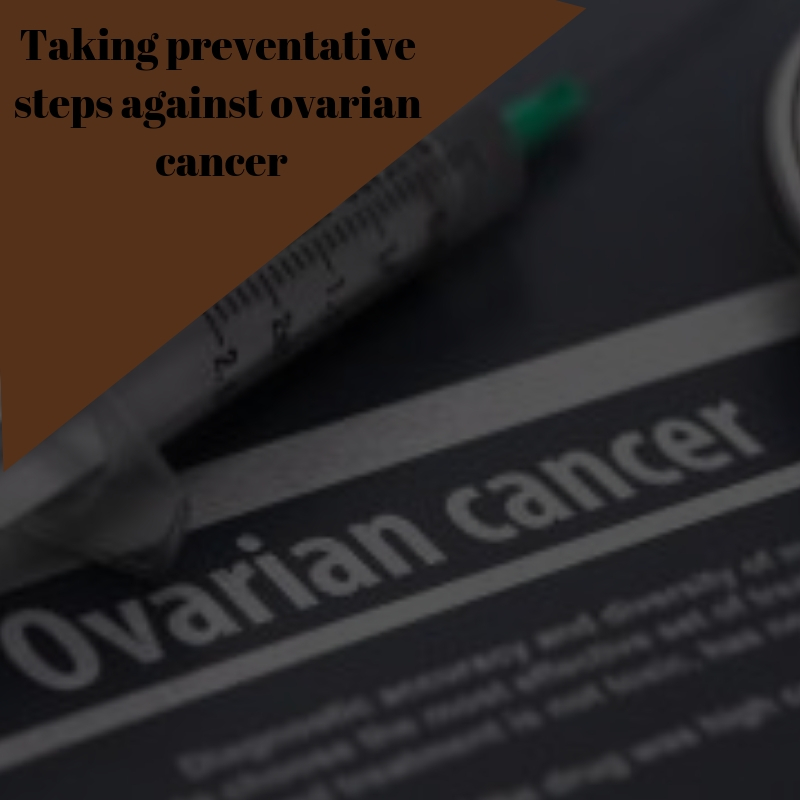Women over the age of 45 are most at risk of ovarian cancer and more than 7,000 will be diagnosed with the disease in the UK every year.
As I mentioned in my previous article on prostate cancer, March is ovarian and prostate cancer awareness month. The aim is to shine the spotlight on the importance of detecting and treating the disease early.
Here are some of the increased risk factors involved:
- Endometriosis – when the lining of the womb grows outside the womb
- When women have been on HRT for seven years of more (1% of ovarian cancer cases are linked to HRT).
- Smoking
- Hormonal disruptors: exposed to herbicides, pesticides and drinking out of plastic bottles
From the point of view of a naturopathic nutritionist, I aim to take a preventative approach to ill health. While this is in no way a treatment for ovarian cancer, if there is a family history of the disease, there are things you can do regarding diet and lifestyle to lower the risk.
What protects against ovarian cancers?
- Drinking tea may lower the risk of ovarian cancer. This can be green tea, black tea or any herbal teas. Black tea has powerful compounds (flavonoids) with strong disease-fighting properties.
- Eat a colourful diet such as vegetables and fruit, those have high antioxidants.
- Stay lean by exercising and maintaining a healthy body weight. Keeping things like high cholesterol and blood pressure at bay. This may also help the formation of polycystic ovarian cysts, by keeping away the bad fats.
- Include allium vegetables, containing high levels of flavanols, such as onions, garlic, leeks and chives and organosulphur (sulphur rich foods such as Brussels sprouts, bok choy, cabbage and cauliflower) compounds, which contribute to the anticancer effects.
Overview of other things to consider
- Environmental and industrial toxicity: air, food and water pollutants
- Bacteria, fungus, moulds, yeast and parasites
- Electromagnetic toxins refer to PC’s, Wi-Fi and microwaves.
- Household chemicals: cleaners, air fresheners, wax and paints.
- Personal care products: hair dyes, bleaches, hairsprays and lotions.
- Heavy metal: amalgam fillings, food packaging, lead pipes and antiperspirants.
Preventative and natural approach to support cancer
The body needs an optimum level of nutrients; this mean eating a well-balanced diet, if not organic. It is important to supplement your body with the nutrients it requires. Therefore, a multivitamin and mineral supplement will support the body with a good level of nutrients.
I believe that the body should have a good balance of essential fatty acids, this means omega 3,6 and 9, which not only acts as an anti-inflammatory but also helps to balance your hormones. Vitamin C is a great bioflavonoid and provides great preventative support for cancer. Linus Pauling, who was a biochemist and a two-time Nobel Laureate did a series of books, starting with Vitamin C and the Common Cold in 1970, followed by Vitamin C, the Common Cold and the Flu (1976), Vitamin C and Cancer (1979), and How to Feel Better and Live Longer (1986).
Taking a good probiotic will ensure that you are giving your gut health enough friendly bacteria, which will also help prevent and deactivated oestrogen that has been deposited into the gut to be activated again by all those unfriendly bacteria.
Prevention is better than cure and if you want to consider a more natural approach to dealing with your health, I provide a free telephone consultation to see how I can help, or you can email me at hello@futurehealthmanagement.co.uk

